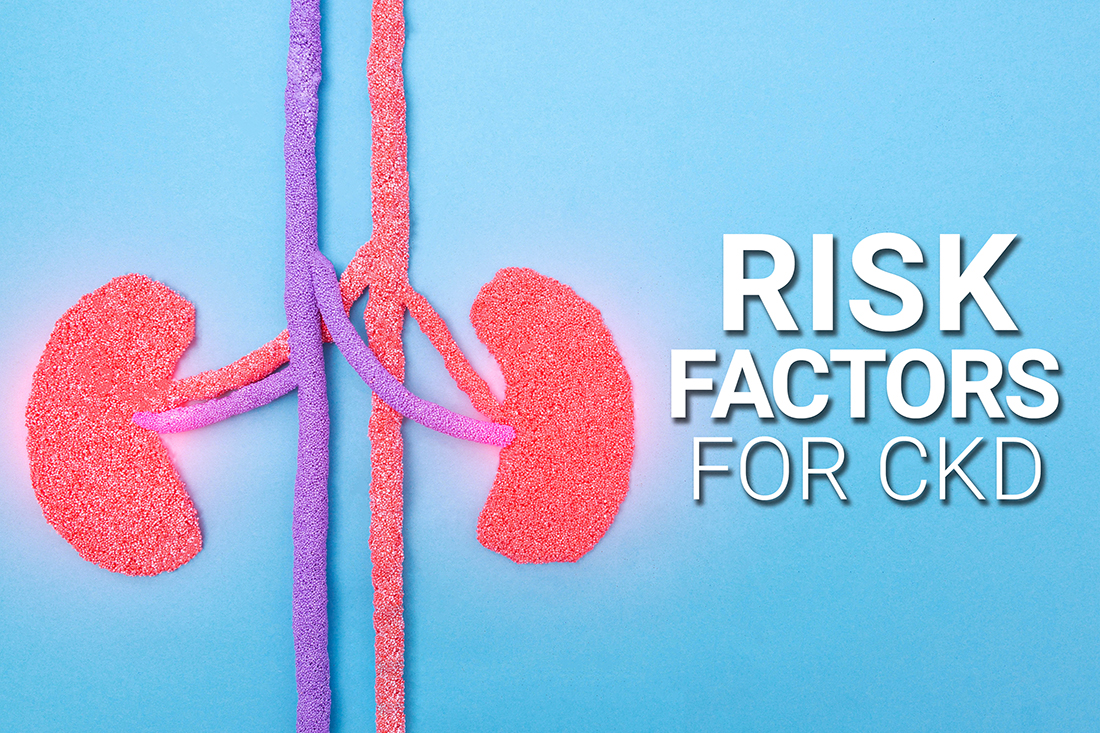
Approximately 34 million people in the United States have diabetes—that’s nearly 11 percent of the U.S. population. Did you know that people with diabetes are at higher risk for associated conditions, like chronic kidney disease (CKD)?
CKD is the gradual loss of kidney function over time. The kidneys are vital organs that support crucial bodily functions including filtering toxins from the blood, regulating bodily fluid levels, making vitamin D to strengthen bones, helping control blood pressure, and increasing red blood cells. The kidneys don’t recover from damage as well as other organs, and in many cases, decreased kidney function is irreversible, so it’s essential to take care of them.
Often referred to as a “silent disease,” CKD often presents no symptoms in its early stages. In fact, as many as 9 in 10 adults living with CKD are unaware that they have it until it reaches more advanced stages. It’s important for patients and their doctors to be aware of CKD risk factors, causes, and the serious complications that can arise.
In the U.S., type 2 diabetes (T2D) is one of the leading causes of CKD. Other common risk factors include people with a family history of kidney failure, cardiovascular disease, smoking, age, obesity, and race and ethnicity. Getting screened is the essential first step toward taking necessary action to slow the progression of CKD.
CKD is screened by measuring your kidney numbers—estimated glomerular filtration rate (eGFR), which measures how well the kidneys are filtering waste, and your urine albumin-creatinine ratio (uACR), which detects signs of kidney damage. It is important to talk to your doctor about your risk for CKD, and get screened to help manage your kidney health. Until recently, CKD had been managed by treating underlying risk factors of the disease. However, treatment options are now available for patients living with T2D to help slow the progression of CKD and delay end-stage renal disease.
Other ways to slow CKD progression include active involvement in your diabetes care; working with your doctor to monitor and manage your blood pressure, cholesterol levels, and diet; exercising to maintain a healthy weight; and avoiding smoking cigarettes, which can worsen kidney damage.
If you are living with diabetes, speak to your doctor about your kidney numbers and visit Unfiltered Kidney Conversations (UKC) – a community created to support CKD patients and their loved ones providing CKD warriors stories and educational resources like the doctor discussion guide – to learn more.


So what are “normal” numbers for kidney filtration.
Above 60 mL/minute